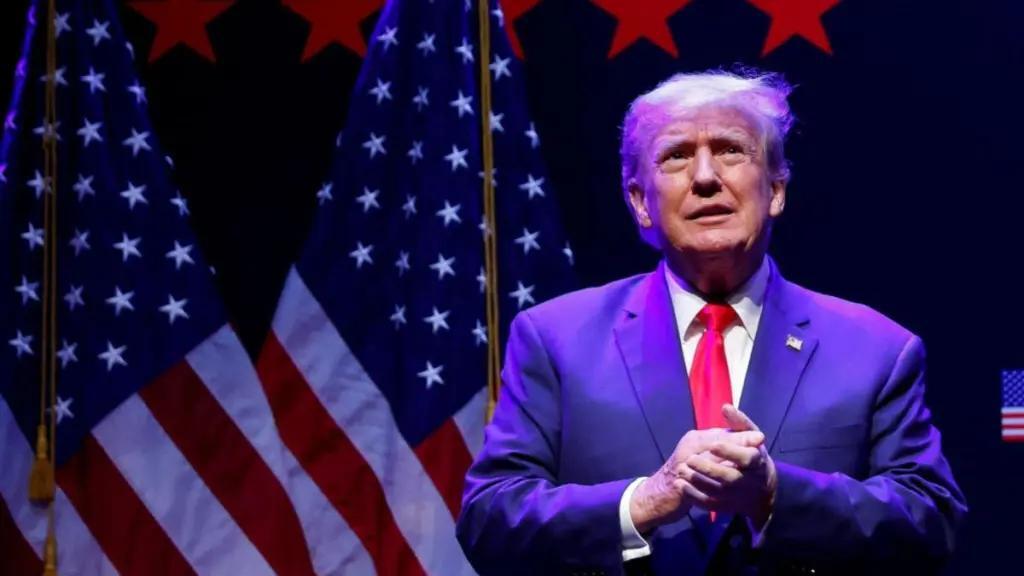
Donald Trump Exempts Smartphones & Computers from Reciprocal Tariffs
In a move that has sent shockwaves through the tech industry, United States President Donald Trump has excluded smartphones, computers, and other electronic items from the reciprocal tariffs, including the 125% tariffs he imposed on Chinese goods. This decision comes amid growing concerns by tech giants, including Apple, that the tariffs may lead to a significant increase in gadget prices.
The exemption was announced by the U.S. Customs and Border Patrol (CBP) in a notice that revealed that Trump had signed a proclamation on August 20, 2019, to exempt certain electronic items from the reciprocal tariffs. The notice stated that the exemption would be in place until further notice, and that the CBP would continue to monitor the situation to ensure that the tariffs were not being circumvented.
The move is seen as a major relief for tech companies, including Apple, Samsung, and Huawei, which have been grappling with the prospect of increased tariffs on their products. The companies had been warning that the tariffs could lead to a significant increase in prices, which could negatively impact sales and profitability.
One of the main concerns for tech companies is that the tariffs could lead to a shift in supply chains and production lines. Many electronic items, including smartphones and computers, are manufactured in China, and the tariffs could make it more expensive for companies to produce and import these products. This could lead to a shift in production lines to other countries, potentially affecting employment and economic growth.
The exemption is also seen as a major victory for the tech industry, which has been lobbying the Trump administration to reconsider the tariffs. The industry had argued that the tariffs were unfair and would lead to a significant increase in prices for consumers.
“We appreciate the administration’s decision to exempt certain electronic items from the reciprocal tariffs,” said an Apple spokesperson. “We believe that this decision will help to protect American consumers and the tech industry, and we will continue to work with the administration to address the issues surrounding the tariffs.”
The exemption is not limited to just smartphones and computers. The CBP notice also includes a range of other electronic items, including televisions, laptops, and gaming consoles. The notice states that these items are “essential to the efficient operation of the U.S. economy” and that the tariffs on these items would “cause significant economic harm to the U.S. industry.”
The move is also seen as a major blow to China, which had been pushing the Trump administration to reconsider the tariffs. China had argued that the tariffs were unfair and would lead to a significant increase in prices for American consumers.
The decision to exempt electronic items from the reciprocal tariffs is seen as a significant shift in Trump’s trade policy. The tariffs were imposed as part of Trump’s “America First” agenda, which aimed to reduce the trade deficit and promote American jobs. However, the exemption of electronic items suggests that Trump may be willing to make concessions in order to protect American industries and consumers.
The news of the exemption was welcomed by markets, with stocks rising in response to the news. The Dow Jones Industrial Average rose over 200 points, while the S&P 500 index rose over 1%.
The decision to exempt electronic items from the reciprocal tariffs is a significant development in the ongoing trade tensions between the U.S. and China. The tensions have been ongoing for months, and have led to a range of economic sanctions and tariffs being imposed on both sides.
The U.S. has imposed tariffs on over $250 billion worth of Chinese goods, including textiles, electronics, and machinery. China has responded by imposing tariffs on over $110 billion worth of U.S. goods, including soybeans, aircraft, and autos.
The tensions have also led to a range of economic sanctions being imposed on both sides. The U.S. has imposed sanctions on Chinese companies that are believed to be involved in human rights abuses, while China has imposed sanctions on U.S. companies that are believed to be involved in Taiwan’s military.
The decision to exempt electronic items from the reciprocal tariffs may be seen as a major step towards resolving the trade tensions. However, it is unclear whether the exemption will be enough to resolve the issues, and whether the tariffs will be lifted in the coming months.
Source:






